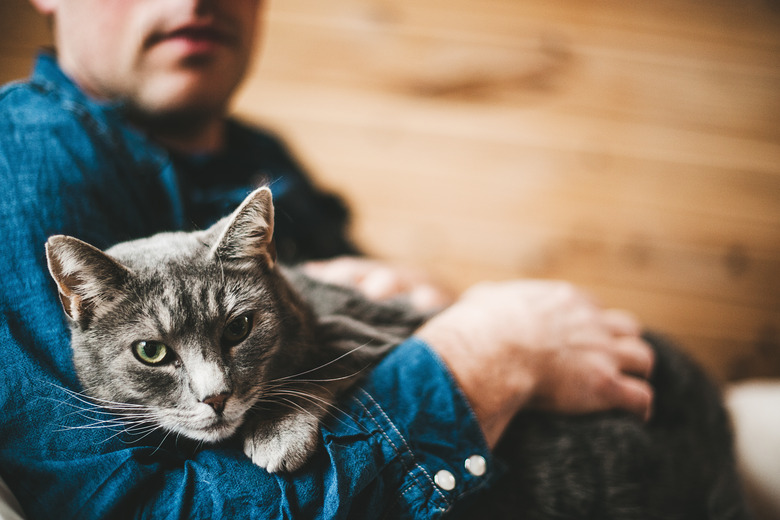Are Cats Nocturnal?
Diurnal, nocturnal, or crepuscular. Which one of these terms best describes your cat? Diurnal animals are active mostly during the daylight hours. Nocturnal animals are active in the evening hours and like to sleep during the day, while crepuscular critters favor their activities at or around dawn and dusk.
Big cats, small cats
Big cats, small cats
In the wild, big cats are mostly nocturnal hunters. Their eyes (much like that of the domesticated cat) are designed for sight in low and high light levels. If your domestic cat displays nocturnal behavior, it's acting like a big cat (lion, tiger, etc.) Usually, these cats sleep anywhere from hours a day to more than sixteen a day. That's a lot of sleeping! The good news is this behavior can be modified in most cats (but alas, not in all.)
Cool crepuscular cats
Cool crepuscular cats
Cats combining daylight activity with nighttime activity are commonly known as crepuscular. The common house cat, most likely because of a higher rate of human interaction, is not nocturnal but crepuscular.
Crepuscular cats lounge around, enjoy dream-filled naps, and lay low around midday to avoid the heat and keep cool. They then become more active in the early morning and early evening hours.
Crepuscular critters differ from diurnal and nocturnal. Nocturnal animals peak during the night while diurnal animals peak during the day. Some cats commonly described as nocturnal are crepuscular.
It's interesting to note here that moonlit nights and dreary, cloudy days can entice the crepuscular cat into action, so daytime activity is not totally ruled out of the crepuscular cat's agenda!
Nocturnal feral cats
Nocturnal feral cats
Feral cats appear to be nocturnal for the most part, according to Southern Methodist University. A "feral" cat is a stray or offspring of a stray that has returned to a partially wild state. These cats survive in colonies usually around a food source such as a restaurant dumpster, a trash can or an abandoned building. Feral cats usually depend on some human contact to attain their food and rarely live only by hunting prey alone.
More diurnal managed cats
More diurnal managed cats
Every cat, whether it's a household cat, a stray or an alley cat, can change their activity level at will and can become less nocturnal or more diurnal in response to their level of interaction with their environment or activities with humans.
"My cat keeps me awake at night," is a common complaint of cat owners. Nocturnal behavior in cats can be annoying for their human owners, but sometimes this behavior can be managed, so the cat adjusts to the human lifestyle and becomes more diurnal, says the Animal Humane Society. If your cat displays nocturnal behavior, what must be done is a slight shifting of their schedule as well as management of their environment.
Tips that may help
Tips that may help
Don't payoff disturbing behavior, warns PAWS. If you give your cat what it wants, you're reinforcing this nightlife behavior and verifying, "Hey, this works!"
Early evening exercise may provide enough activity to tire out your cat and have him (or her) sleep through the night. Devoted activity may allow you that sleep you so desperately need at night!
While you're away during daytime hours, provide some type of activity for your cat for mental and physical stimulation. A food type toy such as a 'Roll-a-Treat' is a great distraction. A catnip toy like the 'KONG Squirrel Catnip Toy' is another good method of keeping your cat awake during the day. Consider feeding your cat with an automatic food dispenser toy. This will keep your cat on its feet and not sleeping all day. Feeding times are important. Consider feeding your cat a few times throughout the day (one being at night, before bedtime.)
Never punish or strike your cat. Your cat's behavior is not caused by any human emotion. Punishing your cat will cause a stressful relationship between you and will not ultimately solve the problem.
Managing your cat's nocturnal behavior by following the above guidelines may keep you both 'in-sync' for years to come. Unfortunately, not every cat will respond in the same manner. Situations differ just like each cat is different!
